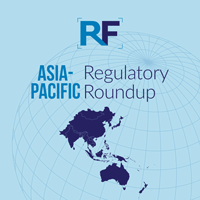Asia-Pacific Roundup: Malaysia publishes guidance on manufacturing cell and gene therapies
 AsiaBiologics/ biosimilars/ vaccinesBiotechnologyChemistry, Manufacturing and Controls (CMC)ComplianceDiagnostics/IVDsMedical DevicesOceaniaPharmaceuticalsProduct Lifecycle
AsiaBiologics/ biosimilars/ vaccinesBiotechnologyChemistry, Manufacturing and Controls (CMC)ComplianceDiagnostics/IVDsMedical DevicesOceaniaPharmaceuticalsProduct Lifecycle